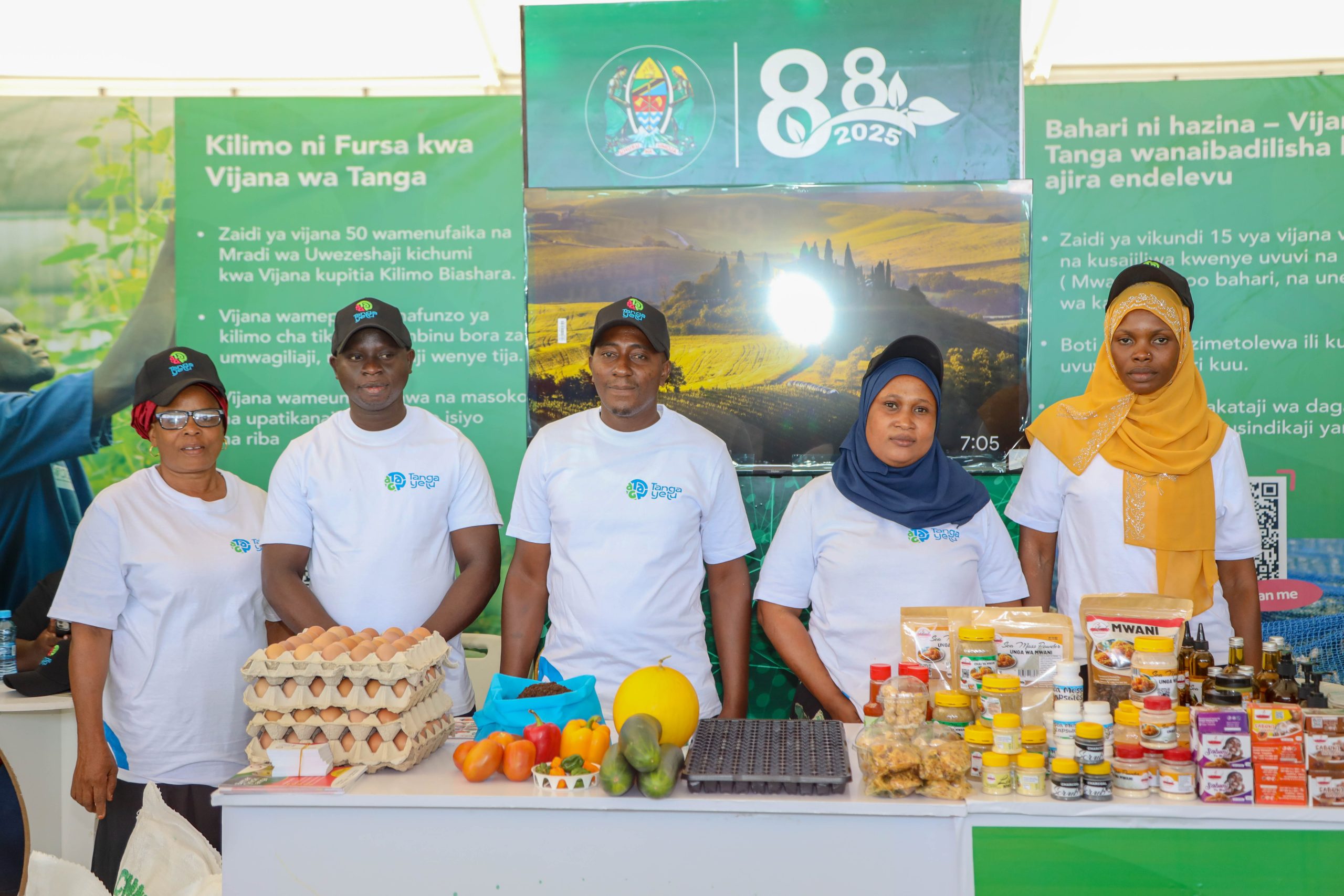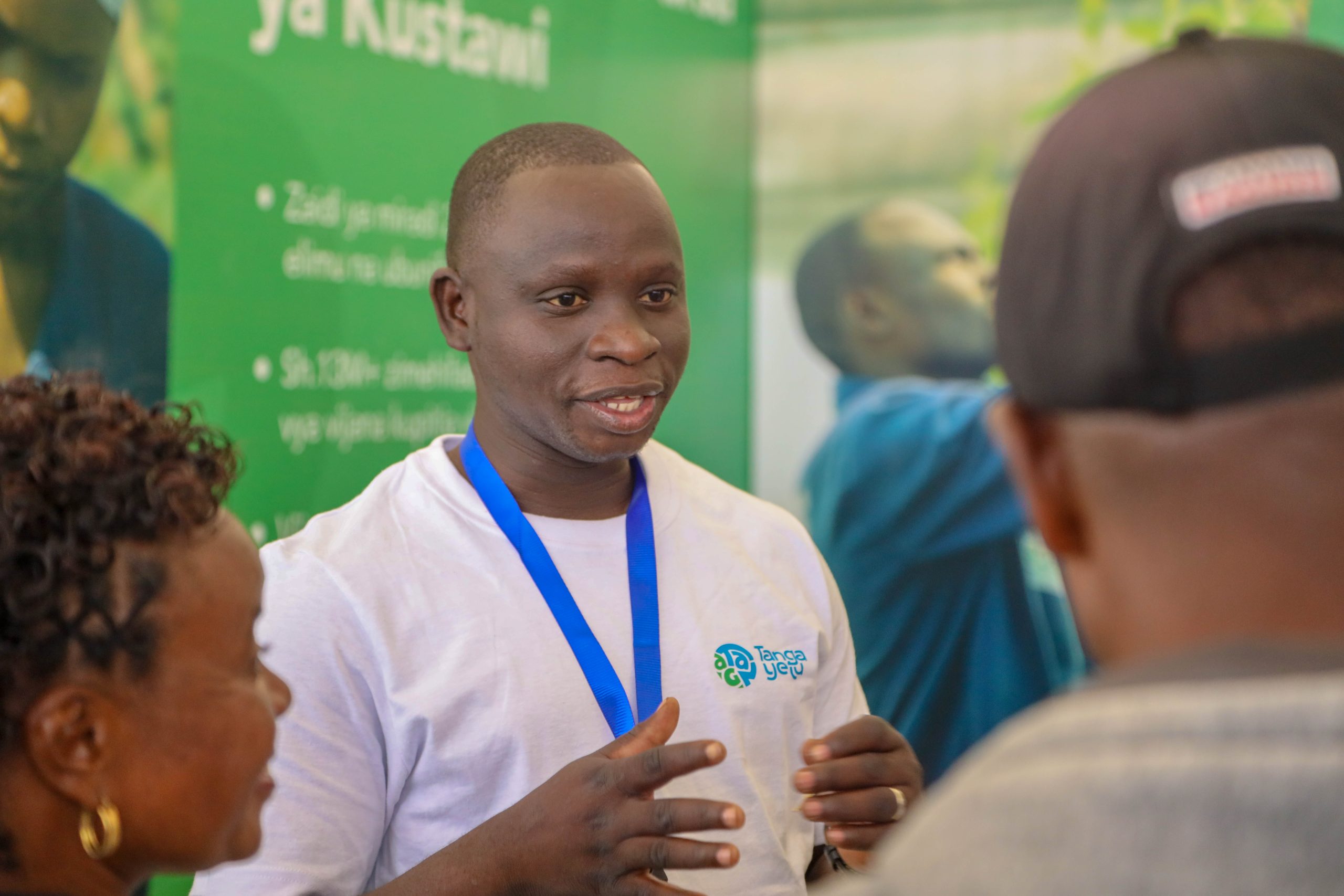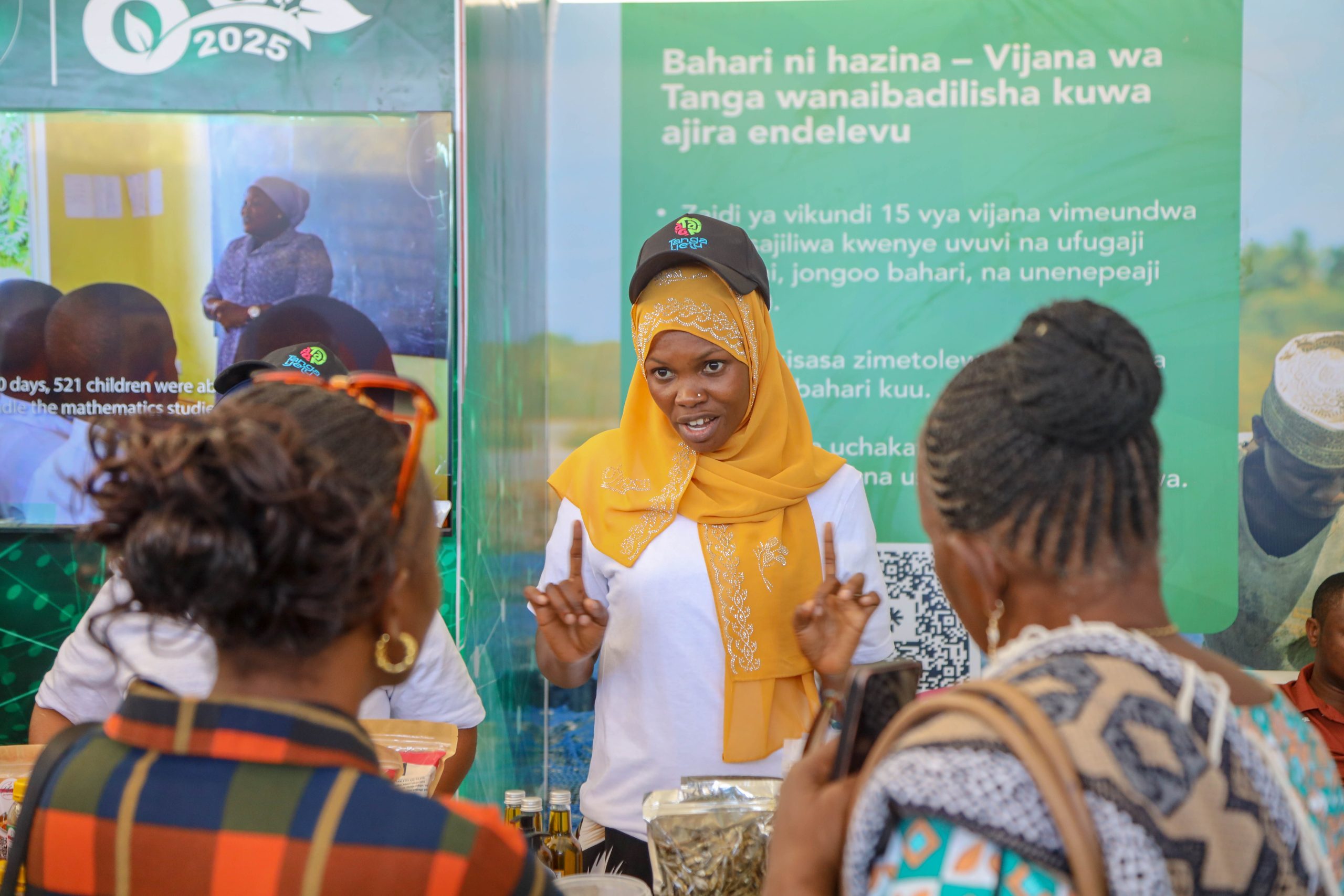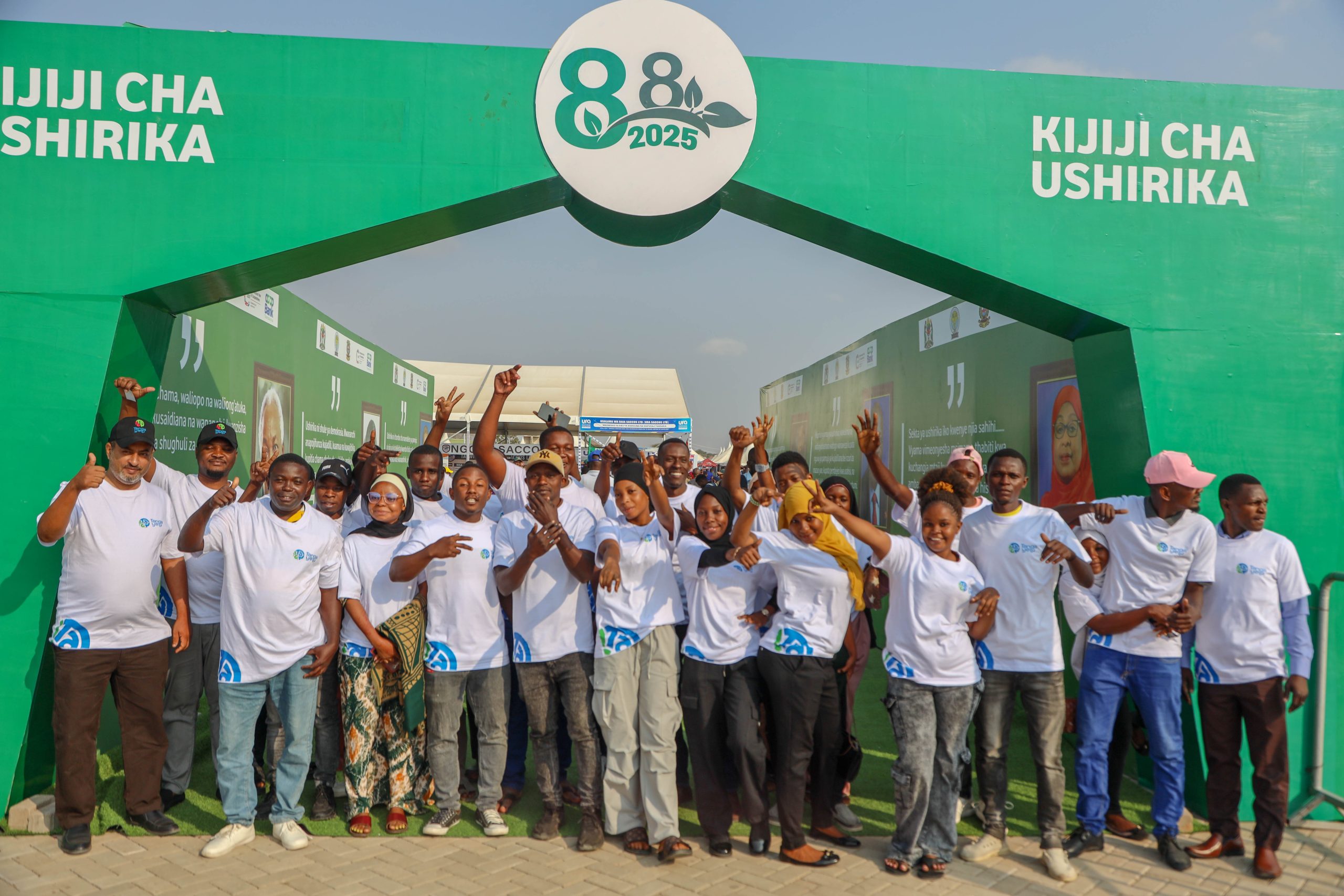
Every August, Tanzania comes together to celebrate Nanenane on August 8, with a week of exhibitions leading up to the big day, showcasing the best in agriculture and innovation. This year, the exhibitions at Nzuguni Grounds in Dodoma brought together thousands of farmers, entrepreneurs, innovators, and policymakers to share knowledge, display products, and inspire the next generation of agribusiness leaders. Among the many groups that stood out were the youth from Tanga, whose participation reflected the energy and ambition shaping the region’s economic transformation.
From seaweed farmers to poultry entrepreneurs, young innovators from Tanga showcased the diversity of skills and ventures emerging from their communities. Their participation was not just about displaying products but also about learning, networking, and exploring opportunities to scale their businesses.
For Paul Divason, a young poultry farmer from Tanga, the experience was about much more than exposure.
“Being here gave me the chance to interact with people who have been in the business for years,” Paul said. “I’ve learned about new ways to improve feed quality and how to access better markets. It’s a reminder that our small farms in Tanga have the potential to grow and compete nationally.”
Paul is part of a growing number of young people in Tanga who are redefining agriculture as a profitable and sustainable career. His poultry venture, which started with a small flock, now supplies eggs and chicks to local markets and continues to expand thanks to skills gained through TangaYetu phase I.

In addition to agriculture, Tanga’s youth are making strides in the blue economy. Riziki Hemedi, a young entrepreneur involved in sardine processing, described the exhibition as a turning point for her business.
“I’ve been able to meet buyers from other regions who are interested in our sardines and learn about packaging and branding techniques that can make our products more appealing, For many of us, this event is about dreaming bigger and seeing what’s possible when you put yourself out there.” said Riziki
Riziki is part of the Jitegemee Group in Mtambwe village, which recently benefited from modern solar tent dryers and sardine processing training. These dryers, unlike the traditional open-ground drying methods, ensure higher quality products that meet safety standards and attract better prices. Her participation in Dodoma helped her connect with experts from across the country to discuss product diversification and value addition, opportunities that could significantly increase her group’s income.

For many of the youth participants, this year’s Nanenane was their first opportunity to present their products on a national platform. It was also a chance to build valuable networks with potential buyers, partners, and mentors.
Workshops and training sessions held during the exhibitions covered topics like agribusiness financing, value addition, and digital marketing, equipping the young entrepreneurs with insights they can take back to their communities.
“One of the biggest lessons I’m taking home is the importance of collaboration. There are youth groups in other regions doing amazing things with very limited resources, and we can learn from each other to build stronger businesses.” said Paul.
The youth who attended the exhibitions represent different sectors poultry farming, sardine processing, seaweed farming, and agribusiness ventures like sweet melon production. These initiatives are supported by TangaYetu through collaborations that focus on youth empowerment, skill development, and sustainable economic growth.
Through these efforts, young people in Tanga are not only gaining practical skills but also the confidence to participate in national dialogues on agriculture and innovation. Their presence at Nanenane is a testament to the impact of investing in youth-led solutions.
Nanenane has long been a platform for celebrating agricultural achievements, but in recent years, it has also become a space for innovation and youth leadership. The participation of young entrepreneurs from Tanga did not go unnoticed. Their booths attracted policymakers, agribusiness investors, and fellow youth eager to learn about Tanga’s success stories.
For the youth, such recognition serves as validation of their efforts and motivation to push forward. As Riziki shared,
“When experts acknowledge what we’re doing, it encourages us to keep improving. It shows that our work matters, not just for us but for our entire community.”
While the week-long event has ended, the journey for these youth is far from over. The contacts made, lessons learned, and opportunities explored during the exhibitions are expected to shape their ventures for years to come.
“This is just the beginning,” Paul said. “The next step is to apply everything we’ve learned here and to keep pushing ourselves. If we continue working together, Tanga can lead the way in showing how youth can transform agriculture and fisheries.”
While the booth was anchored by these four young entrepreneurs, the spotlight grew even brighter during the Nanenane Summit. On Farmers’ Day, 45 young poultry entrepreneurs from Tanga all beneficiaries of the TangaYetu program, joined the celebrations at the invitation of the Ministry of Livestock and Fisheries.
Graced by H.E. Dr. Samia Suluhu Hassan, President of the United Republic of Tanzania, the day celebrated Tanzania’s agricultural achievements and created a national platform for learning, networking, and innovation. The group interacted with peers from across the country, exchanged practical knowledge, and explored new market opportunities.

As the country looks toward building a sustainable future, empowering young people to take the lead in sectors like agriculture and fisheries will be critical. The experience in Dodoma serves as a reminder that when given the right opportunities, youth can drive meaningful change for themselves, their communities, and the nation.